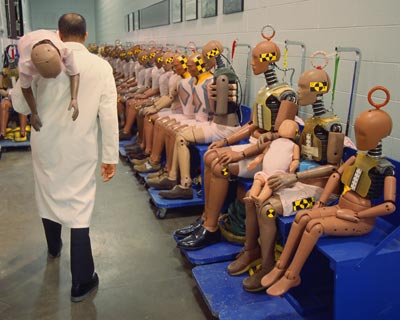The Bay Area, home of Moneyball, seems to have created a market inefficiency waiting to be exploited: tech workers who’ve reached their thirtieth birthdays. A strong bias in favor of not just young employees but very young ones, a culture with values akin to Logan’s Run, has left talented people fearing their first wrinkle or gray hair. Where will these “olds” go? The opening of Noam Scheiber’s New Republic article “The Brutal Ageism of Tech“:
“I have more botox in me than any ten people,’ Dr. Seth Matarasso told me in an exam room this February.
He is a reality-show producer’s idea of a cosmetic surgeon—his demeanor brash, his bone structure preposterous. Over the course of our hour-long conversation, he would periodically fire questions at me, apropos of nothing, in the manner of my young daughter. ‘What gym do you go to?’ ‘What’s your back look like?’ ‘Who did your nose?’ In lieu of bidding me goodbye, he called out, ‘Love me, mean it,’ as he walked away.
Twenty years ago, when Matarasso first opened shop in San Francisco, he found that he was mostly helping patients in late middle age: former homecoming queens, spouses who’d been cheated on, spouses looking to cheat. Today, his practice is far larger and more lucrative than he could have ever imagined. He sees clients across a range of ages. He says he’s the world’s second-biggest dispenser of Botox. But this growth has nothing to do with his endearingly nebbishy mien. It is, rather, the result of a cultural revolution that has taken place all around him in the Bay Area.
Silicon Valley has become one of the most ageist places in America. Tech luminaries who otherwise pride themselves on their dedication to meritocracy don’t think twice about deriding the not-actually-old. ‘Young people are just smarter,’ Facebook CEO Mark Zuckerberg told an audience at Stanford back in 2007. As I write, the website of ServiceNow, a large Santa Clara–based I.T. services company, features the following advisory in large letters atop its ‘careers’ page: ‘We Want People Who Have Their Best Work Ahead of Them, Not Behind Them.’
And that’s just what gets said in public.”
_________________________
“There’s just one catch…”:

